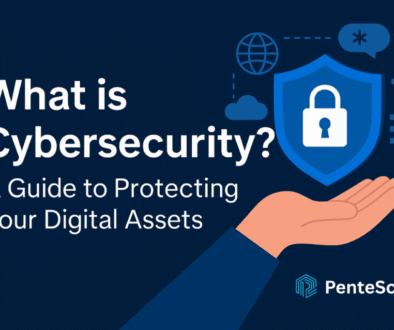5 Considerations Before Becoming an Ethical Hacker
Ethical hacking involves probing computer systems and networks to identify and fix security vulnerabilities before malicious hackers exploit them. As a critical component of cybersecurity, ethical hacking helps organizations protect their digital assets and maintain trust with their users. Given the increasing frequency and sophistication of cyberattacks, ethical hacking is a growing field that offers significant opportunities for professionals to impact cybersecurity positively. However, the 5 Considerations Before Becoming an Ethical Hacker are crucial to understand, as they can guide your journey and help you prepare for the challenges and responsibilities that come with this role.
Several important considerations must be remembered before starting a career as an ethical hacker. This post will highlight key factors that potential ethical hackers should be aware of to ensure they are well-prepared for the challenges and responsibilities of the role.
1. Understanding the Legal and Ethical Boundaries
Legal Requirements and Regulations
Ethical hackers must adhere to legal frameworks governing their activities. For instance, the Computer Fraud and Abuse Act (CFAA) in the U.S. outlines what constitutes unauthorized access to computer systems. Real-world examples include Andrew Auernheimer, who faced legal consequences for accessing data without authorization, even though he intended to expose vulnerabilities. Understanding these laws is crucial to avoid legal pitfalls.
Ethical Guidelines
Ethical hackers follow a code of ethics to guide their professional conduct. For example, the EC-Council Code of Ethics emphasizes principles like respect for privacy and obtaining proper authorization. Ethical dilemmas might arise when a discovered vulnerability could be exploited for personal gain or when handling sensitive information. Adhering to these guidelines helps maintain professional integrity.
Consequences of Violating Boundaries
Violating legal or ethical boundaries can lead to severe repercussions, including legal action, loss of professional credibility, and career setbacks. A notable case is that of Marcus Hutchins, who faced legal issues related to past activities despite being a respected security researcher. Such cases underscore the importance of operating within legal and ethical boundaries.
2. Required Skills and Knowledge
Technical Skills
Ethical hackers need a strong foundation in technical skills such as networking and programming and familiarity with security tools like Metasploit and Wireshark. For example, knowledge of programming languages such as Python or JavaScript is essential for writing scripts and automating tasks. Mastery of these skills is critical for effective vulnerability assessment and exploitation.
Certifications and Training
Certifications such as the Certified Ethical Hacker (CEH) and Offensive Security Certified Professional (OSCP) are valuable for career advancement. Actual data shows that professionals with certifications often have higher salaries and better job prospects. The CEH certification, for instance, is recognized globally and demonstrates a solid understanding of ethical hacking principles. Check out our article, The Path to Becoming a Web Application Penetration Tester: Skills, Salary, and Career Prospects.
Continuous Learning
The field of cybersecurity is constantly evolving, making continuous learning essential. Staying updated with the latest trends and vulnerabilities through resources like online courses, webinars, and industry news helps maintain effectiveness as an ethical hacker. For example, the rapid emergence of new ransomware variants necessitates ongoing education to stay ahead of potential threats.
3. Understanding the Role and Responsibilities
Scope of Work
Ethical hackers are responsible for penetration testing, vulnerability assessment, and risk analysis. Daily activities may include scanning networks for weaknesses, conducting security audits, and preparing detailed reports on findings. For instance, ethical hackers might work on projects to secure web applications or corporate networks from potential threats.
Client Interaction
Effective communication with clients is crucial for translating technical findings into actionable recommendations. Accurate data from client interactions highlights that clear, concise reports and presentations can significantly impact decision-making and remediation efforts. Providing actionable insights helps clients understand and address security issues effectively.
Project Management
Managing time, resources, and expectations is vital for successful project execution. Examples of successful project management in ethical hacking include setting clear objectives, adhering to timelines, and coordinating with other team members. Effective project management ensures that security assessments are conducted thoroughly and efficiently.
4. Financial and Career Considerations
Cost of Entry
Entering the ethical hacking field involves training, certifications, and tools costs. For example, the CEH certification can cost around $1,200, and additional expenses for training courses or lab access might be required. Understanding these costs helps you budget for the necessary investments in your career.
Career Path and Advancement
Ethical hacking offers diverse career paths, including security consultant, penetration tester, and security analyst roles. Accurate data indicates that the demand for cybersecurity professionals is growing, with job opportunities and salary expectations rising. According to the U.S. Bureau of Labor Statistics, the employment of information security analysts is projected to grow 35% from 2021 to 2031.
Work-Life Balance
The nature of ethical hacking can involve high-pressure situations, especially during critical assessments or incident responses. Balancing work with personal life can be challenging but is essential for long-term success and well-being. Professional testimonials suggest that managing stress through effective time management and self-care strategies is crucial.
5. Ethical and Personal Motivation
Personal Integrity and Motivation
A genuine interest in security and ethical practices is fundamental for success in ethical hacking. Stories of ethical hackers motivated by personal values or a desire to protect others highlight the importance of passion and integrity in this field. For example, some ethical hackers are driven by a commitment to improving overall cybersecurity and helping organizations safeguard their assets.
Handling Pressure and Stress
Ethical hacking can be stressful, particularly during high-stakes assessments or when dealing with critical vulnerabilities. Strategies for managing stress include practicing mindfulness, setting realistic goals, and seeking peer support. Accurate data suggests that professionals who actively manage stress are more effective and perform better.
Long-Term Commitment
A successful career in ethical hacking requires a long-term commitment to continuous improvement and professional development. Examples of long-term success stories in the field often involve ongoing education, networking, and adapting to evolving cybersecurity trends. Commitment to lifelong learning and staying updated with industry advancements is critical to sustaining a successful career.
Conclusion
Before embarking on a career in ethical hacking, it is vital to consider several key factors that will shape your journey. Legal and ethical boundaries, required skills, role responsibilities, financial investments, and personal motivations are all critical areas to evaluate. Understanding the challenges and responsibilities of ethical hacking ensures you’re well-prepared for this dynamic and impactful field.
The rapidly evolving nature of cybersecurity demands continuous learning and adaptability to stay ahead of emerging threats. Investing in technical expertise, certifications, and professional integrity can establish a strong foundation for long-term success. Moreover, managing stress and maintaining a healthy work-life balance is essential for sustaining your career in this high-pressure field.
Ultimately, ethical hacking offers an opportunity to contribute meaningfully to cybersecurity while fostering trust and security in the digital world. With the right mindset and preparation, you can excel in this rewarding profession and help safeguard organizations and individuals from cyber threats.
Call to Action
We invite you to subscribe to our monthly newsletter and follow us on our Facebook, X, and Pinterest channels for more insights and updates on cybersecurity trends and best practices. Our blog provides valuable information and resources to help you stay informed and prepared against evolving threats.
Engage with our community to share knowledge, ask questions, and stay connected with industry developments. Visit our About Us page to learn more about who we are and what we do. If you have any questions, please reach out through our contact page. You can also explore our services to discover how we can help enhance your security posture.
Frequently Asked Questions
Essential requirements include a strong understanding of networking, programming, security tools, relevant certifications, and training.
Certifications are highly valued as they demonstrate expertise and can enhance career prospects and earning potential.
Ethical hackers must adhere to legal frameworks like the Computer Fraud and Abuse Act and follow ethical guidelines to avoid legal and professional issues.
Effective stress management techniques include mindfulness, setting realistic goals, and maintaining a healthy work-life balance through proper time management and self-care.
Before pursuing a career as an ethical hacker, consider factors such as your commitment to continuous learning, the potential ethical dilemmas you may face, and your readiness to handle complex and high-pressure situations. Understanding these aspects will help you better prepare for the field’s challenges.




